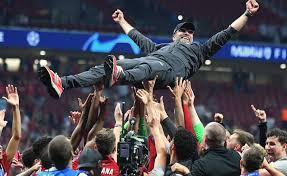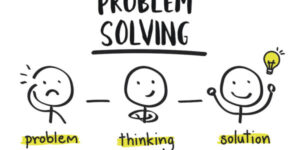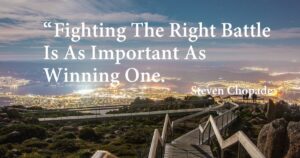So when I’m asked to work with a Team, I’m often tasked with helping to get “Performance Improvements”. Before we get into analyzing it etc., my first question is always, “How would you describe relationships within your Team?”. Have you ever noticed how difficult it can be to work with someone you don’t really have a relationship with? Have you ever worked within a truly “Trusting Relationship”?
Leadership is built upon the foundations of strong relationships. Ask yourself these questions, “Who are admired as brilliant leaders and why?” and “Why do their Teams work so hard in the pursuit of their goals?”. Without a trusting relationship, the other skills and tools of leadership are made redundant. Now, ask these two questions, of both yourself and your Team. Not about your efforts to date, but how will you be reflected upon in 5 or 10 years from now. Will the people you lead rate you as a brilliant leader, and if so, why?
Trust is magic:
Having a genuine relationship, beyond hitting business objectives, is the basics. But developing real “Trust” is the magic pixie dust that encourages the extra discretionary effort that great leaders get.
Using Jurgan Klopp as my example of a great modern leader (You can substitute him with whoever works for you), what makes him stand out? There is no doubt that his smile and droll laugh are unique, but what do the people who’ve worked with him say makes him great?
His players speak about his positive disposition and how he speaks to them about more than tactics and winning football games. He also knows them well as individuals beyond their role in Liverpool FC the business. He understands what’s important to them personally. Knowing and caring about your people undoubtedly builds trust and a sense of partnership. Understanding what “THEY” value, how to help them get more of it, and ensuring that they can view the relationship as a win/win opportunity. Wouldn’t you trust someone who was interested in helping you get what you wanted on the way to achieving their business goals?
Testimony
Sadio Mané – Player – Liverpool FC
“He is a bit of a funny guy, but at the same time, he is a serious guy. Usually when I am talking to him off the pitch it is about personal things. Things about lifestyle and life – and that is important to me. I think I have somebody I can confide in.”
What “Trust” looks like:
He also understands that giving responsibility to others, builds trust both ways. Klopp delegates the running of the Liverpool dressing room to his player leadership group. Jordan Henderson, James Milner, Van Dijk, and the recently departed Gini Wijnaldum were his generals. He keeps a distance from the players’ inner sanctum and allows senior players to resolve any trivial internal matters. He knows he can trust that group to uphold standards and, in Henderson, Liverpool have a selfless but demanding captain. In return, they accept this responsibility, appreciate his faith which in turn builds the trust even further.
Encouraging Contribution:
His colleagues on the Backroom & Business Teams also appreciate the relationship they have with the jovial German. On taking up the post he instantly acknowledged their existence, the importance of the role they would play in any future success, and challenged them to come to him with any ideas that would improve their performance. He united them behind a single objective of searching for “Performance Improvements” and challenged them to find “better ways”. Encouraging contribution creates inclusion and ownership. In addition to valuing their opinions, it creates Trust, while at the same time reducing the importance of hierarchical status amongst the group.
Appreciation and feeling Valued:
Ian Graham, a Dr of Theoretical Physics (who’d have thought you’d need one in a Football Club!), is the man involved in making sense of the data-streams and turning it into mathematical modeling that informs the recruiting. These models are used to identify what’s needed and analyse the prospective new signings. Unlike his predecessor Brendan Rogers, Klopp embraced Graham’s insights and trusted Michael Edwards to process it with the backroom team. They discuss the challenges together initially, Edwards and his team do their thing and Jurgan is involved in the final decision. To quote Klopp himself, “For me it is enough to have the first and the last word, the middle we can discuss,” he said. “I am not a genius. I don’t know more than the rest of the world. I need other people to get perfect information.”
So while he doesn’t abandon his leadership responsibilities, he makes informed decisions and ensures that his “people” know their importance and value. He’s curious about their information and together they move forward. Accepting ultimate responsibility for their recommendations shows further “Trust” in his team’s capabilities.
Further Testimony:
Tactics, Strategy, and Talent all have a place in the team performance, but it’s building the relationships and trust amongst the team at large that is the secret sauce. Pepijn Lijnders who returned to Liverpool to become Klopp’s assistant after a brief spell as a manager in his own right, suggests the Reds boss places more importance on what happens off the field rather than specific details of a plan. Lijnders told the Dutch newspaper De Volksrant …..
Pipijn Lijnders – Assistant Coach – Liverpool FC
“Jurgen creates a family. We always say: 30 per cent tactic, 70 per cent team building,”.
It’s this that creates the motivation to work so hard, to do the hard yards and to continuously search for that extra bit that turns ordinary into extraordinary.
Real Engagement grows Trust:
The correlation between engagement and performance is a fascination for obvious reasons. In an analysis of 50 Global companies by consulting firm Towers Watson, they found that companies with low engagement scores had an average profit margin of just under 10%. Those with higher engagement had a slightly higher margin of 14%. But the top superstar firms with the highest engagement scores had an average profit margin of 27%. So could higher engagement in the Liverpool squad be the reason why they perform so well? By Klopp’s genuinely expressing interest in his employees, is he cranking up their engagement, leveraging on their mutual connection and trust? And does this, in turn, deliver their results, even during difficult times?
Conclusions:
There can be no doubt that if you want your team to be at the top of their game, profession or industry, investing in your relationships and building trust is a must. So as a Leader, ask yourself the question -“Would my team lift ME up?” and “Would they catch ME on the way down?”.
Damian Shields is a Performance Coach and the owner of Focus2Succeed. He works with Leaders & Teams to help them “Get their world in Focus & Design their future”. To find out more go to www.Focus2Succeed.ie. You can contact Damian @ Damian.Shields@Focus2Succeed.ie or on 00353 (86) 2512421




